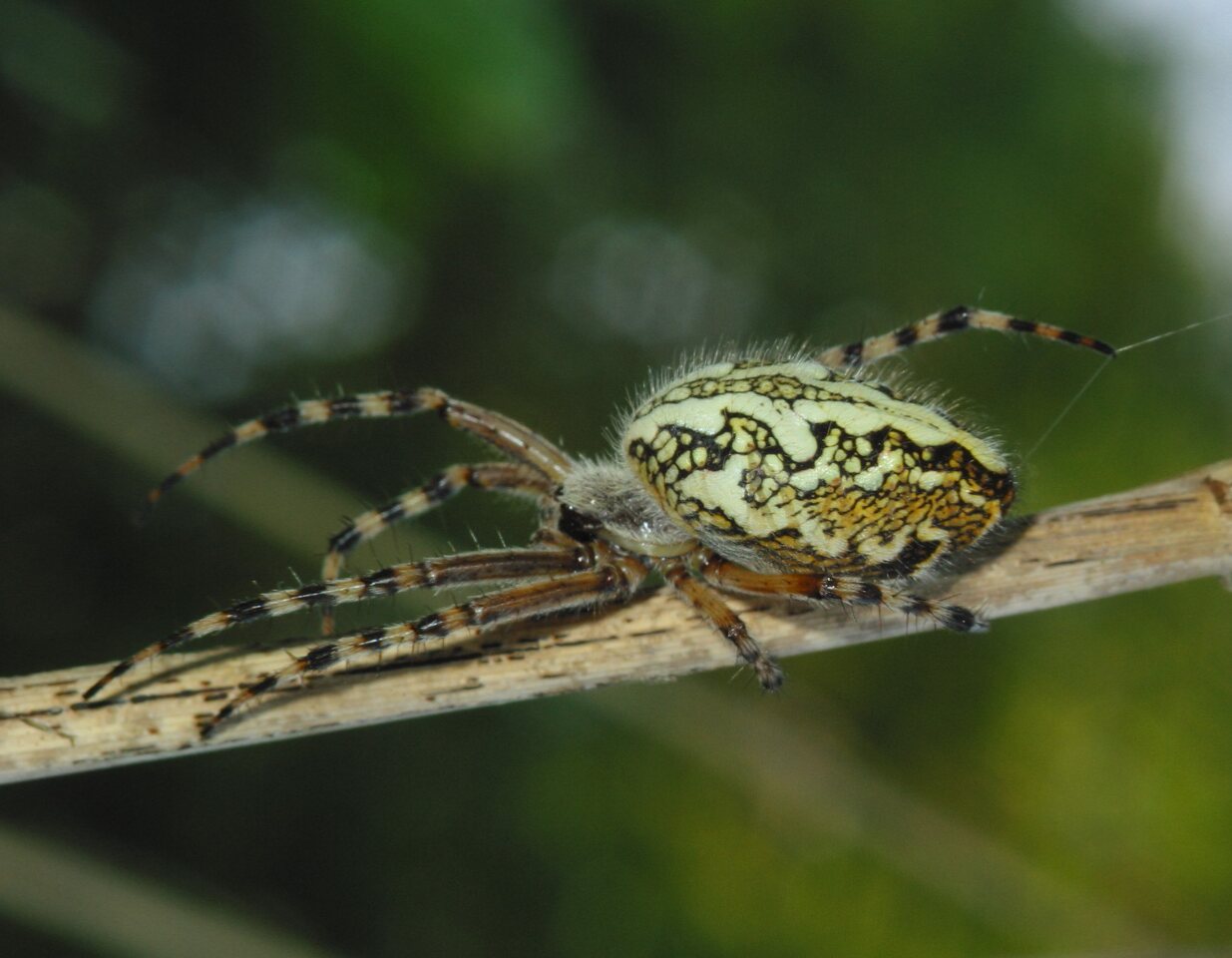
Aculepeira ceropegia female · ąžuolalapis verpstūnas ♀
- Araneus ceropegia
- oak spider
- Eichblatt-Radspinne, Eichblatt-Kreuzspinne
- ąžuolalapis verpstūnas
- ozollapas riteņzirneklis
- kołosz wielobarwny
https://en.wikipedia.org/wiki/Aculepeira_ceropegia This species has a Palearctic distribution. It is present in most of Europe. This quite common species live in low bushes, wet meadows, near streams, roadsides and gardens, especially in sunny and windy areas. These orb-weaving spiders usually build a spiral vertical web close to the ground between herbaceous plants or on bushes at about 0.5–1.5 meters above ground level.
Aculepeira ceropegia presents a marked sexual dimorphism. These spiders can reach a length of 6–8 mm in males, of 15–17 mm in females. They are easy to identify due to their unique abdominal marking in the form of an oak leaf. The head is covered by a grayish-brown hairs, chelicerae are light brown and legs are dark ringed. The abdomen is elongated and oval-shaped.
Adults are visible from May to September. Early in the summer the oak spiders are sexually mature. The mating occurs during the summer, while the egg laying is done in early autumn. Eggs are usually deposited on the bark of a tree.
‥